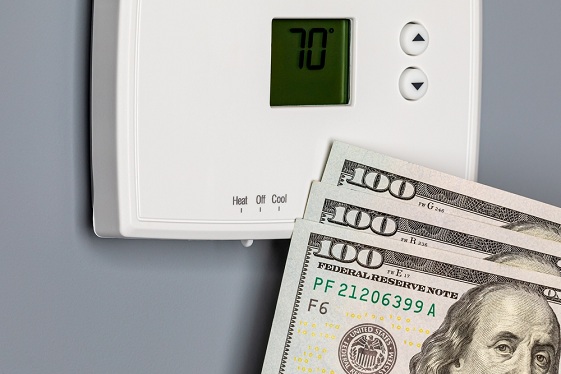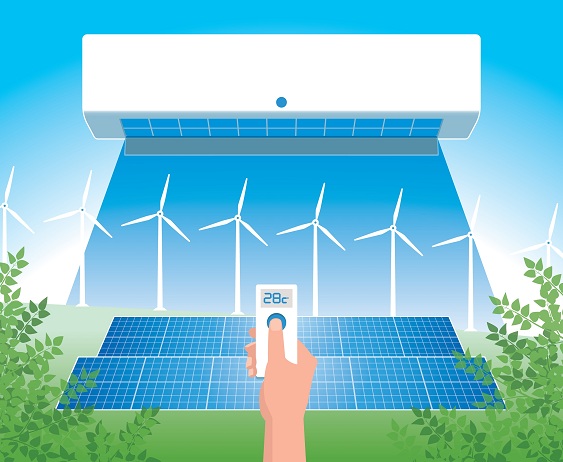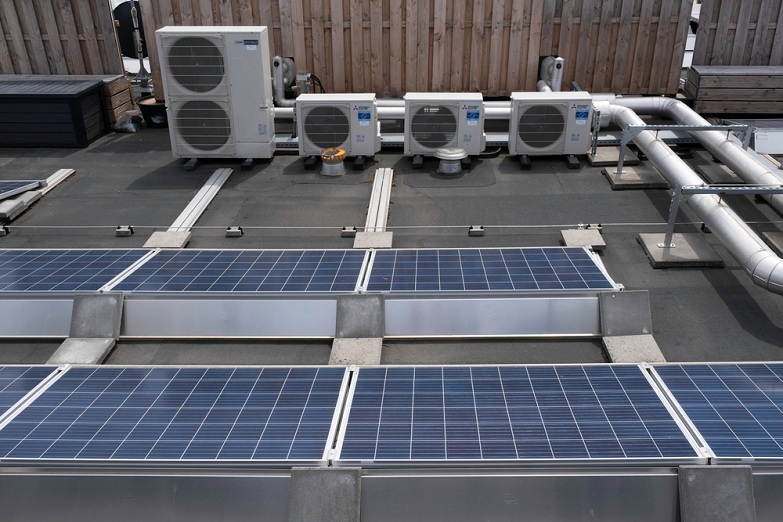Most people want to stay cool during the hot summer months, so they install an air conditioning system in their houses.
According to the U.S. Department of Energetics, approximately 12 percent of the household's electricity usage goes toward air conditioning.
We spend a huge sum of money on running air conditioners, but we use a huge amount of electricity too. It is estimated that AC releases around 120 million metric tons of CO2 into the environment every day. As we're trying to stay cool, we're contributing towards making summers even hotter by causing global warming.
Fortunately, with solar air conditioning, you can stay cool without using electricity, reducing your power bill and carbon footprint. We'll explore the kinds of solar-powered air conditioners available in the market that best suit your needs.
Types of Solar Air Conditioners
Solar PV air conditioners and Solar thermal air conditioners are two types of solar air conditioners, each of which works differently:
Solar PV (photovoltaic) air conditioners
Solar PV air conditioning systems work just like conventional split air conditioners. Instead of using the grid, it uses solar power generated by solar panels. The required number of solar panels may vary depending on the size of the system; usually, it is two to six.
You can pair these with solar batteries for additional power when there isn't enough sunlight. These are called solar hybrid AC units when connected to batteries.
Solar thermal air conditioners
A solar thermal cooling system uses solar energy to heat a fluid, which flows through the system and turns into steam. As the evaporated and condensed liquid moves through the pipes, it creates cool air for your house.
Cost of Solar Air Conditioning

A solar air conditioner is considerably more expensive than a traditional air conditioner. It typically costs about $2500 without installation.
The cost of Installation can add up to around $5000. There are some solar air conditioner models in demand, including:
The good thing is that your solar energy system can avail of the 30 percent federal tax credit, significantly reducing its price.
You might be eligible for local tax credits and rebates. Contacting a local solar company will help you understand what tax credits and rebates you can avail of.
Is it Worth Buying a Solar Air Conditioner?
Yes, but not necessarily.
Installing a residential solar panel with an existing HVAC system helps reduce your energy bill. Still, you'll usually benefit from installing a solar panel system that has been specifically designed also to cool your house.
Let's take a look at this:
Let's take an example where the Scott family spends $1,500 annually on electricity, roughly equivalent to the national average, out of which $180 is spent on air conditioning.
After considering the federal tax credits for installing a solar air conditioning unit, it takes approximately 20 years to recoup the installation cost. If we assume that the Scotts' solar system covers all of their electricity needs, then it would take them 20 years to accumulate enough savings to cover the cost of their solar system.
If they decide to go ahead and install a solar power system that costs approximately $13,000 after the federal tax credits, their solar payback time would be ten years (or less). It means that it would only need to be ten years before their solar panels could pay back their investment. And this system even includes their air conditioning bills.
A solar panel system has a shorter payback period than a solar cooling system. After reaching your payback period, you'll be able to generate free electricity for the rest of the system's life. Use our solar calculator to calculate the solar paybacks for your home.
A Solar Air Conditioner Is The Right Choice

Some situations may call for an installation of a solar air conditioning system. For example not enough roof space.
If you don't want to invest in installing a complete residential solar system due to limited roof space, then a solar air conditioner might be a good alternative. It could help you save energy, reduce electricity usage, and lower monthly electric bills.
If people living in off-grid houses want to install a separate solar air conditioner, they might want to consider it. With this design, off-grid homes don't lose out on the benefits of air conditioners when they're not connected to the grid.
It would be best if you asked a nearby HVAC contractor to install a solar cooling unit, so you know it is working properly. Because there could be safety hazards if the refrigeration system isn't properly maintained, get them to handle the job. If you're looking for an immediate return on that investment, you might want to consider a residential solar power system.


